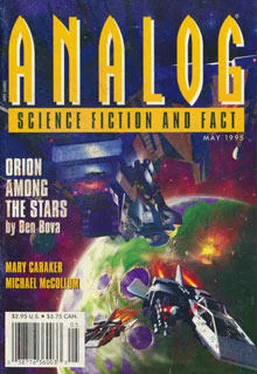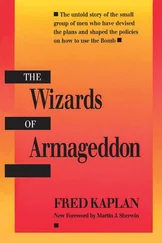Christopher McKitterick - Paving the Road to Armageddon
Здесь есть возможность читать онлайн «Christopher McKitterick - Paving the Road to Armageddon» весь текст электронной книги совершенно бесплатно (целиком полную версию без сокращений). В некоторых случаях можно слушать аудио, скачать через торрент в формате fb2 и присутствует краткое содержание. Год выпуска: 1995, Издательство: Dell Magazines, Жанр: Фантастика и фэнтези, на английском языке. Описание произведения, (предисловие) а так же отзывы посетителей доступны на портале библиотеки ЛибКат.
- Название:Paving the Road to Armageddon
- Автор:
- Издательство:Dell Magazines
- Жанр:
- Год:1995
- ISBN:нет данных
- Рейтинг книги:3 / 5. Голосов: 1
-
Избранное:Добавить в избранное
- Отзывы:
-
Ваша оценка:
- 60
- 1
- 2
- 3
- 4
- 5
Paving the Road to Armageddon: краткое содержание, описание и аннотация
Предлагаем к чтению аннотацию, описание, краткое содержание или предисловие (зависит от того, что написал сам автор книги «Paving the Road to Armageddon»). Если вы не нашли необходимую информацию о книге — напишите в комментариях, мы постараемся отыскать её.
Paving the Road to Armageddon — читать онлайн бесплатно полную книгу (весь текст) целиком
Ниже представлен текст книги, разбитый по страницам. Система сохранения места последней прочитанной страницы, позволяет с удобством читать онлайн бесплатно книгу «Paving the Road to Armageddon», без необходимости каждый раз заново искать на чём Вы остановились. Поставьте закладку, и сможете в любой момент перейти на страницу, на которой закончили чтение.
Интервал:
Закладка:
Goddard, Esther, von Braun, Vebretsky, and six other engineers watched through sunglasses from a bunker situated a quarter mile from the launch pad. Hundreds of print, radio and television news reporters flocked the concrete polygon, sheltered against explosion only by panels of steel or peeking around the comers of bunkers, cameras ready.
At the count of “Twenty,” vaporized oxygen began to form a cloud around the graceful sweep of the craft. “Three,” “Two,” “One,” “Zero” and its linguistic variations—.
A multifaceted jewel of white-hot gas, accompanied by two vivid orange cones of flame, stretched away from the pad, visible through the growing cloud of exhaust. At this distance, it was completely silent for a few seconds; Goddard could hear only his heart thumping in his ears. Squinting through dark lenses, he could see the rocket itself—intact and rising straight, steadily upward.
Then his heart nearly exploded with fear that the rocket had destroyed itself. So loud was the sudden thunder—he recalled the dogfight over Greece—that he was certain their efforts had been in vain. But the roar was steady, and he realized this is how it should sound, not unlike the static tests. He grew a sheepish grin at his foolish fear.
Soon, everyone rushed out of the bunker onto the surrounding patio. The synchronized rumble of five rocket engines buffeted the forest and observers. They all looked as if they had reacted the same way as Goddard had, fearing the worst.
Nearly a minute passed. Even though Goddard had relaxed from his initial scare, he held his breath. So did the others, even the Colonel. Then came the nerve-wracking stage-change, a smooth pop cutting across the sky, tossing the first stage loose. A cheer rose among watchers from five bunkers as loudspeakers announced the separation.
The rocket vanished into the blue ocean of air, only its off-white pillar of cloud visible. Soon, loudspeakers told of the second-stage’s separation, then the bum-out of the third stage and its jettisoning as the payload coasted into orbit around the Earth.
Unplanned celebrations commenced.
“I do not often partake of the spirits,” Goddard said, chuckling through a fuzz of champagne.
“His doctor forbade him,” Esther said, her face a mix of wrinkled concern and grinning joy.
“My faulty body,” Goddard added, grunting.
“Ach, but the Bolsheviks have no good German beer!” von Braun chided. “How can a man celebrate with französischem Champagner and Bolshevik vodka?”
“You seem to be celebrating just fine,” Korolyov observed. The six people seated at this end of the conference table joined in loud laughter.
Talk continued so for some time, until Goddard tired of the crowd and slipped away to have a look at the launch pad. He walked alone for a long time, thinking and planning, listening to the soft, constant chorus of night animals. Korolyov caught up to him halfway across the pavement.
“Sergey,” Goddard said, nodding, smiling.
“Doctor Goddard,” said the other. He looked drunk, serious. As they walked, the voices of the celebrants faded. Soon, they stood alone at the base of the great pad, staring at a collapsed catwalk arm. Its metal was badly oxidized, but appeared to have withstood the launch. It would serve again and again, if it were recoated each time and if its mechanical elements escaped damage.
“Doctor Goddard?” Korolyov said, barely voiced. Goddard looked the man in the eyes. The Russian continued, “I hear the second rocket is on its way from Moscow.”
Goddard smiled and slapped Korolyov on the back. “Fine! A whole armada to be launched from our Cosmodrome by the New Year.”
“There’s something you don’t know,” the other said, hushed and quick. “I have learned a terrible secret. Those of us—the Man-kindists—our first loyalty is to the race, no?”
“Of course,” Goddard answered, mildly troubled by vague fears. Will there only be this one rocket?
“I can’t bear to keep the truth firom you. You are a good man, I know, we all know. You stand up to Vebretsky.”
“He doesn’t understand our goals,” Goddard explained.
“Right!” Though the weather was mild, Korolyov rubbed his hands together, as if chilled. “So you must be told. You must give us direction. They say it is for our own security, for the security of the U.S.S.R. and people everywhere, but now I am not so sure. At least not sure of their motives.”
“What are you talking about, man?” Goddard demanded, frustration boiling to a faceless fear. Something began to gnaw at his stomach.
“Yes, I must tell you,” Korolyov rambled, his eyes staring wildly about. “You can be trusted to find an answer. I cannot trust a German.”
“What is it?” Goddard demanded, angry now, suspecting a new, immeasurable betrayal.
“A few of us suspected something when we weren’t allowed to inspect Tsiolkovsky-1, right? Yes, and perhaps you, as well. But none of us thought much about it—Vebretsky is always like that, always secretive, even about nonmilitary issues.”
“Yes, and?” Goddard prodded.
Korolyov fidgeted more, pretending to inspect blackened metal by picking off flecks of paint. “Two years ago, it seems, one of our people—a Mankindist—infiltrated a Russian atomic bomb plant. I don’t even know where it is located. He passed word to others about his work there, who passed word back to him about their work here and in other places. One of the other places was where the rocket’s computation machine was programmed. He put the pieces of the puzzle together.”
“Dammit, get to the point!”
“Just this morning,” Korolyov said, voice shaking, “I learned Tsiolkovsky-1 carried not the first elements of our cosmo habitat, but an atomic bomb, a hydrogen-fusion atomic bomb.”
“What?”
“An atomic bomb.” Korolyov’s face broke into a sweat. “My first loyalty is not to Zhukov, not even to Mother Russia, but to all Mankind. I should have tried to stop it!” He slammed his fist into his other palm. “Look what I have allowed to happen!”
“No,” Goddard said, suddenly calm, “Vebretsky would have had you killed.” His mind was suddenly lucid. “How big? What’s its target? When will it hit?”
“Oh, it is not like that,” Korolyov said. “They put it in orbit to deter aggression against the Project. This one orbits the Earth in such a way that it can be called upon to deter the Germans and British. Its power is the equivalent of twenty thousand kilotons of TNT. Enough to smooth to molten glass any one of the population and industrial centers in the Europareich or England, and bum and pollute thousands of surrounding square kilometers. National boundaries will mean nothing to this bomb. Its yield is nearly two thousand times greater than your American bombs, and those comparatively tiny weapons have nearly driven Europe mad as they smash and bum factories and whole city blocks. The mere thought of something so much more powerful—even if its destructive power may not be much greater—will stop the war.”
Korolyov paused a moment, but not long enough for Goddard to react, or, really, to process this new information. Then he continued: “The machine-programmer has calculated that the next one will deter the Americans, and the one after that the Chinese.
“I fear that, perhaps, these bombs are not to protect the Project,” Korolyov enunciated clearly. “Zhukov is a good man, but he may be misguided. I fear they may be designed to enforce worldwide Communist rule.”
The world spun dizzily around Goddard. The last thing he saw was Korolyov’s concerned scowl as the Russian asked, “Are you all right?”
Goddard awoke in his apartment in Plesetsk proper. He drew a deep breath, searching his body for pains, finding none. He then noticed Esther and von Braun in the room with him, standing by the window, quiet.
Читать дальшеИнтервал:
Закладка:
Похожие книги на «Paving the Road to Armageddon»
Представляем Вашему вниманию похожие книги на «Paving the Road to Armageddon» списком для выбора. Мы отобрали схожую по названию и смыслу литературу в надежде предоставить читателям больше вариантов отыскать новые, интересные, ещё непрочитанные произведения.
Обсуждение, отзывы о книге «Paving the Road to Armageddon» и просто собственные мнения читателей. Оставьте ваши комментарии, напишите, что Вы думаете о произведении, его смысле или главных героях. Укажите что конкретно понравилось, а что нет, и почему Вы так считаете.












